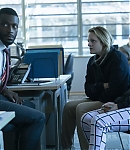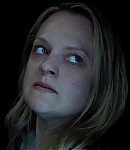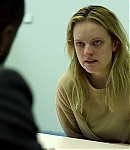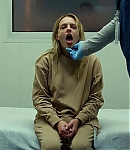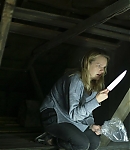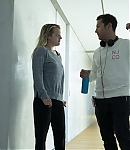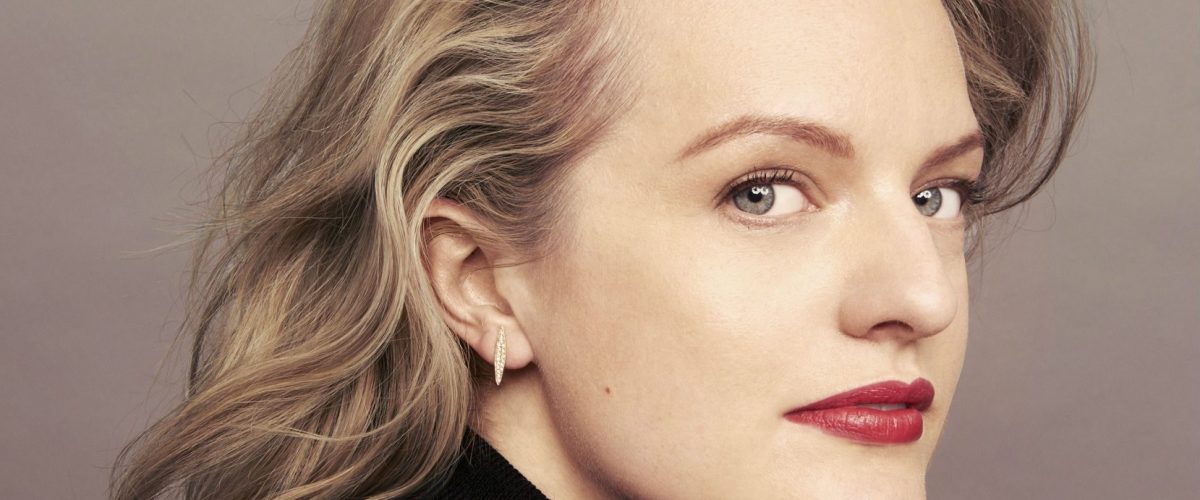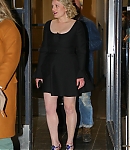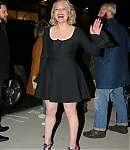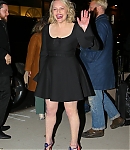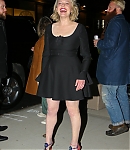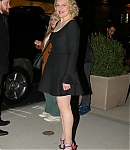Great interview with Elisabeth from The Hollywood Reporter where she talks Us, The Invisible Man, Peggy and more. Read it below.
The actor delves into crafting a “story of female empowerment” out of a monster movie, the duality of ‘Us’ and why Peggy Olson is the only character who still seeps into her work.
Elisabeth Moss has been at the center of Golden Age of Television thanks to her work on The West Wing, Mad Men and The Handmaid’s Tale, but so far in 2019, it’s her work on the big screen that’s been getting the attention.
She had a small but crucial role in Jordan Peele’s Us, and currently stars in Alex Ross Perry’s Her Smell, in which she plays self-abusive rocker Becky Something.
Her feature work is set to continue, with perhaps her highest-profile film role yet. In March, news broke that Moss was in talks for The Invisible Man, Blumhouse’s reimagining of the classic Universal monster tale. Little is known about the secretive project, but as soon as Moss was cast, observers began asking if this would be a gender-swapped Invisible Woman film.
That’s not the case, says Moss, who confirms she will not play The Invisible Man.
“Part of the reason why I wanted to do it is I actually felt like it was a really feminist story of female empowerment and a victim kind of overcoming something,” Moss tells The Hollywood Reporter. “I don’t even know what I’m allowed to say about it! I’m not The Invisible Man, but there is an Invisible Man — if that makes any sense.”
In a conversation with THR, Moss also reveals that she has a role in an upcoming Wes Anderson film, relives one of Mad Men’s most meme-able moments, dives deep into Her Smell and reflects on the duality of her work in Us.
I just heard your Her Smell co-star Ashley Benson tell a story about the time you used a napkin at a dinner party to create Offred. Is this your go-to party trick?
(Laughs.) Did she tell that on Fallon?
Indeed, she did.
It’s so funny. I think they were using napkins to create The Handmaid’s Tale bonnet, and I’m pretty sure I was forced into putting a napkin on my head for photo purposes. So, it certainly was not my idea.
Regarding Her Smell, Becky Something is an agent of chaos. I felt like I was watching a wild animal, even a predator, at times. I know you’re not a method actor, but were you able to rinse this character off of you at the end of the day? Or, did she linger longer than most?
No, it was pretty easy, honestly. I think it would’ve been just too exhausting to not be able to let go of that, after doing it 12 hours a day, at least. It was tiring enough, so I was always really relieved to be able to let go of it, even if it was between takes or on breaks. She was an exhausting person to play, let alone be. I think everyone around me was sort of exhausted by her as well.
Since Offred is the suppressed alter ego of June, did the extreme duality of Becky and Rebecca better prepare you for the extreme duality of Kitty and Dahlia in Us?
I feel like the only interesting to do is to have a duality to characters. Obviously, one of your main goals is to not just play one note or one side of somebody. I think that’s much more true to life as everyone has a social veneer that they might present to the world, and then there’s something else going on inside or something else that they’re hiding or suppressing. One of the main things that I try to do as an actor is show the audience the other side of somebody that maybe even the people in the scene, or the people around you, aren’t seeing, but the camera and audience can see that there’s something else going on there. Obviously, Us’ Kitty and Dahlia is the extreme of that and a very blatant and obvious example of that, but that’s the bread and butter of what I do — to try and show two sides to a person, if not more.
Are you attracted to characters with dual personas because you’re often balancing Elisabeth with whatever character you’re playing at the time? Plus, people often approach you on the street with a certain character of yours in mind, as opposed to Elisabeth.
Yeah, totally. To try and play more complicated characters who have more than one layer to them is the only thing that’s interesting. I guess I’m attracted to it from the very beginning in the writing. If I’m going to be able to have enough to play and if it’s going to be complex enough is something that I look for. Any good script or any good role is gonna have that.
Between Becky and Dahlia, did you have any doubts that you could go to these dark headspaces? If so, do you typically thrive whenever doubt enters the equation?
I actually need to feel confident in order to do it, and I need to feel comfortable. I’m not somebody who thrives off of feeling fear or doubt. It’s kind of the opposite. I’ve always gravitated toward darker characters, more complicated people, because it’s always been more interesting to me. I don’t know what came first, the chicken or the egg; I don’t know whether it’s something that I chose and now that’s all people ask me to do. Or vice versa. Ever since I was way younger, even a teenager, I never got roles that were too simple or too one-note. I would audition for them, but I often wouldn’t get them.
Her Smell, while fictional, is more authentic than most of the high-profile biopics about famous musicians. If Becky Something was a real person and you were asked to portray her, or any famous musician for that matter, would you even be interested if you knew that the film was purposefully glossing over important elements of the subject’s life?
That’s an interesting question. I think I wouldn’t. If I felt like it wasn’t real, wasn’t accurate or was glossing over an important part of that person’s life, I definitely would have a problem with that. I wouldn’t have a problem playing a real person from that world at all.
Part of the attraction of Her Smell, which Alex [Ross Perry] and I talked about, was that we were inventing a new person and didn’t have to stick to anybody that actually existed. So, we weren’t limited by that. It wasn’t a biopic. We were able to have a little bit more freedom and didn’t have to be married to any sort of truth of somebody’s life story, which gave us a lot more to do. Alex purposefully didn’t do certain things or add famous stories that happened during the Riot Grrrl movement, or in that time, even though they might have been fun or cool. You would’ve been thinking, “Oh, that person did that. Or, that’s stolen from that band or that artist.”
You’ve said you didn’t strive to learn to play guitar in just a few months time. Instead, you learned how to look like you were playing guitar. In act two, Becky degenerates to the point where she’s in the studio and can barely play guitar. Did you use your own inexperience on the guitar to sell how far Becky has fallen, both personally and professionally?
Hundred percent. Yeah, for sure. The only time I had to play the guitar myself was very conveniently in the act where she’s supposed to be terrible and everyone is judging how far she’s fallen and that she doesn’t have it anymore. That was the only act where I was comfortable, myself, actually playing the guitar. And I really appreciate you saying that because I grew up in a family of musicians, and my entire family has played instruments since they were little. So, I have a huge amount of respect for real musicians, who’ve done it for 25 to 30 years. That’s part of the reason why I said, “I’m not gonna come in here and pretend like this is something that you can learn in five months, because I grew up knowing that it’s not. These people practice their whole lives, every day.” So, I didn’t want to be a poser, in that sense, and more power to somebody who can actually learn to do that in a short amount of time. I just knew I wouldn’t be able to. It was partially planned and partially just circumstantial that the only act where I was comfortable playing by myself was the one I didn’t have to sound that good.
I’m curious about the career side of things since you’ve been a bona fide lead actor for some time now. When you’re offered a memorable yet supporting role, such as Kitty/Dahlia in Us, are there voices around you that suggest sticking with lead roles in order to ride the wave of momentum that you’ve built up for yourself? Or, is there less calculation than we might imagine and more collaborative spirit than anything else?
Definitely, the latter. As far as calculation, in certain circumstances, you’re for sure thinking about what would be a move upward instead of laterally. But, most of the time, it’s about collaborators; most of the time it’s about the project you’re involved in. With something like Us, it didn’t matter to me, or to anyone else, what the role was. It was just an incredible opportunity to be in Jordan Peele’s follow-up to Get Out. To get to work with him, for me, was something where I really didn’t care what the size of the role was. It’s kind of always been like that for me as far as the lead role versus supporting role thing. I just did a tiny part in a Wes Anderson film, and 100 percent of it was because I wanted to be in a Wes Anderson movie. I’m a tremendous fan. That’s why you get all those other actors in for small parts in his movies, because they just want to work with him. So, it’s much more about the collaboration than any calculated career move.
Actors often lament how they become friendly with their castmates on set, and despite claims to keep in touch, they rarely do — until the invention of the group text. Do you have a running group text with any of your former casts?
Not anymore, but that’s definitely happened. Me, Agy [Agyness Deyn], Gayle [Rankin] and Alex [Ross Perry] had a group text at one point, and then me, Agy and Gayle branched out and started our own. It definitely happens, but I’m sort of notoriously bad at returning texts. (Laughs.) So, generally, I drop out of such things — unfortunately.
You followed Alex’s script to the letter, however, was any of the business improvised, such as Becky touching The Akergirls’ cheeks?
I would say, pretty much, that most of the blocking and physical stuff wasn’t in the script. There might have been a few things, here and there, in the script, like if I ran over and started playing the drums. Pretty much all of that was in the blocking and up to me to figure out.
With features, you typically have a month, at least, to make 90-120 minutes of material, versus eight days to make 44-60 minutes of material for TV. Thus, when you jump from the grind of a television set to a movie set, does it ever feel like a bit of a reprieve?
It depends on what it is, honestly. It also depends if I’m a producer on it or not. So, for something like Her Smell, that was definitely not a reprieve. For something like Us, where I’m coming in for two weeks and basically have two sequences to film over the two-week period, that’s going to be a little bit easier. I’m also not a producer as everything is taken care of, of course. I’m so used to the television schedule, and I’m so used to the idea of living with a character for many years that films are harder for me, because I have to do so much preparation in such a short amount of time and play an entire arc in that month or whatever is. I’m used to being able to have six or seven months to tell the arc of the season, and then years to tell the whole arc of the show. So, in a lot of ways, I’m much more comfortable in television than I am in film.
Do your past characters ever creep back into your psyche or dreams?
Not really. The only one who sometimes does is Peggy Olson, because I played her for so long. Every once in a while, I will do something in a scene or on set, playing another character, where I have to catch myself and go, “Oh, that’s a little Peggy.” Usually, it’s fine because I’m the only person who would frankly even know that. That’s the only one because I played her for nine years.
Have you had the opportunity to say “That’s what the money is for” in your own life?
(Laughs.) No, I don’t think I’ve had the opportunity, but I’ve probably thought it.
I know you’ve answered a million questions about Peggy’s famous hallway strut on Mad Men, one of the Internet’s most popular GIFs to date, but what do you remember from that day on set?
It was much less cool-feeling than I think it came off as in the end. The box, the bouncing of the stuff and the cigarette in the mouth, is actually on the harder side to do, while trying to look cool and confident. It felt a lot less slick than I think it came out to be. We played “Stayin’ Alive” on set, not while we were rolling, but before, to try and get the idea and the rhythm of what we wanted the walk to be.
I was honestly — and still am — bowled over that it became what it became. That was not at all the intention. Of course, it was the intention for it to be a climatic and important moment for the character. So, we knew it would be cool, but we had no idea it would become what it became.
Can you ever envision yourself running from CG monsters or saving the world in a cape and tights?
I don’t know. Never say never, I guess. I don’t know how good I would be at the whole green screen thing. To be acting with nothing, I find that incredibly difficult. We’ll see.
The Invisible Man, or The Invisible Woman, might add another dual role to your collection. Are you willing to provide any adjectives that best describe the character or story to this point?
I haven’t gotten into what I’m allowed to say, yet. I’m pretty sure I can say that I’m not “The Invisible Man.” That would be weird. It’s a little bit of a different take on it. Part of the reason why I wanted to do it is I actually felt like it was a really feminist story of female empowerment and a victim kind of overcoming something. I don’t even know what I’m allowed to say about it! I’m not The Invisible Man, but there is an Invisible Man — if that makes any sense.
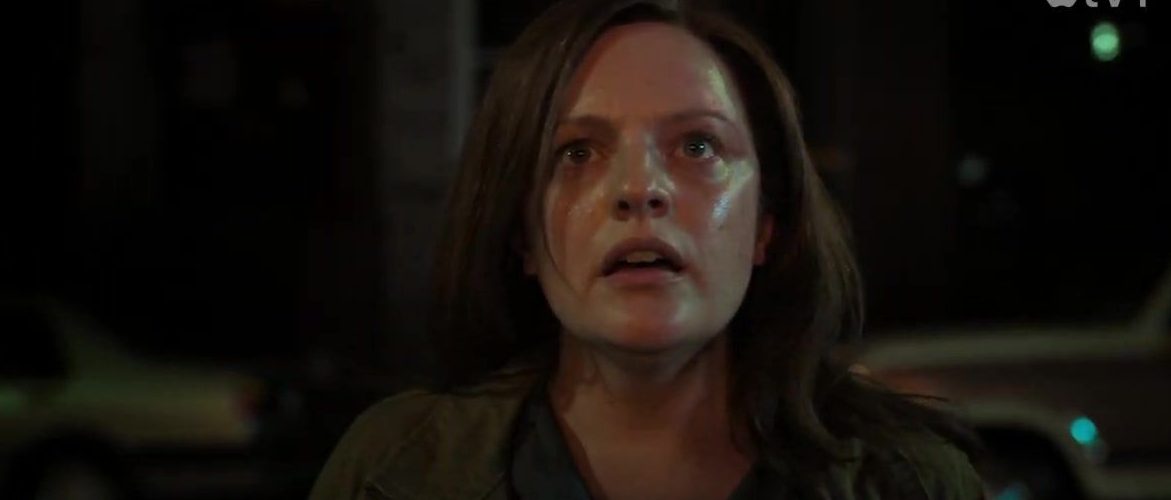
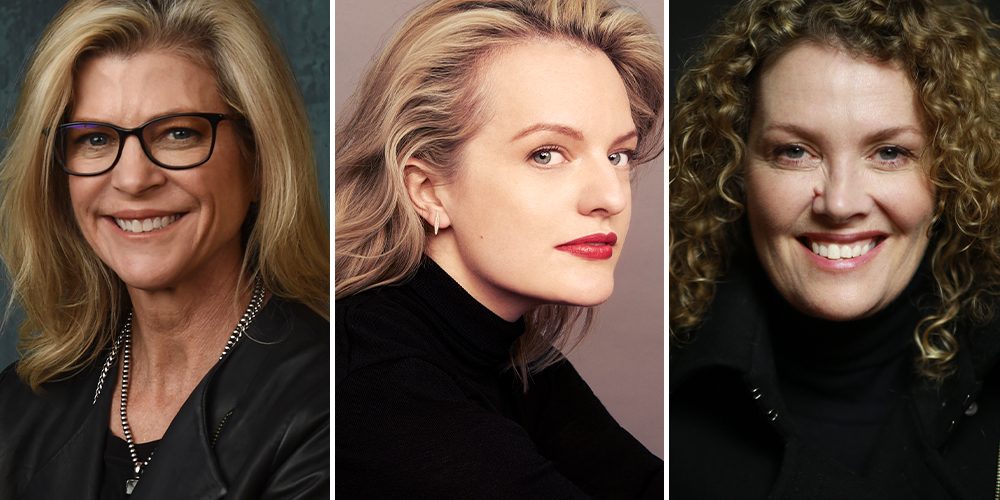

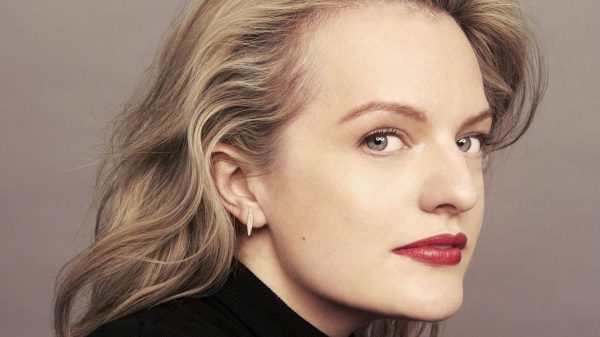

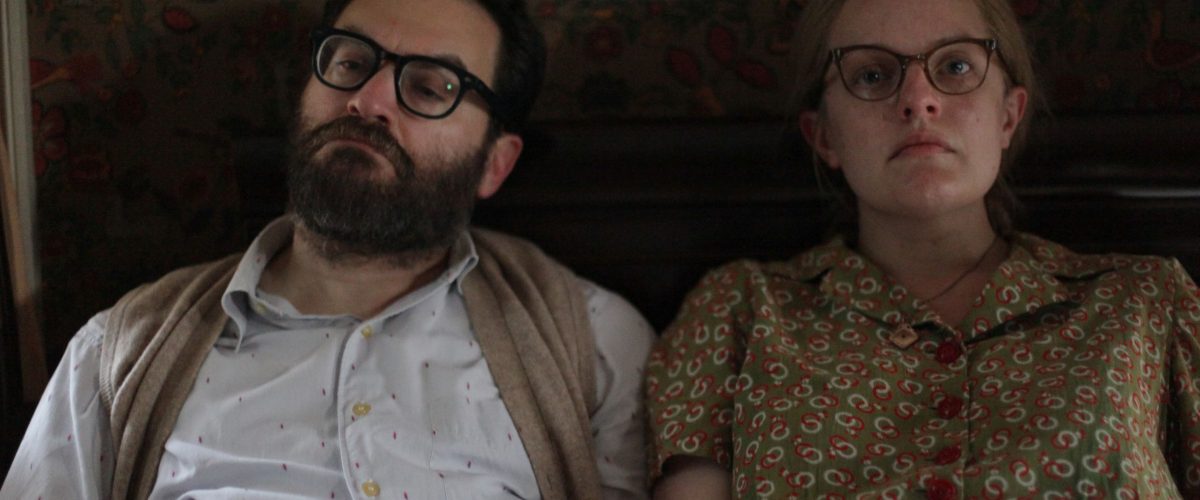
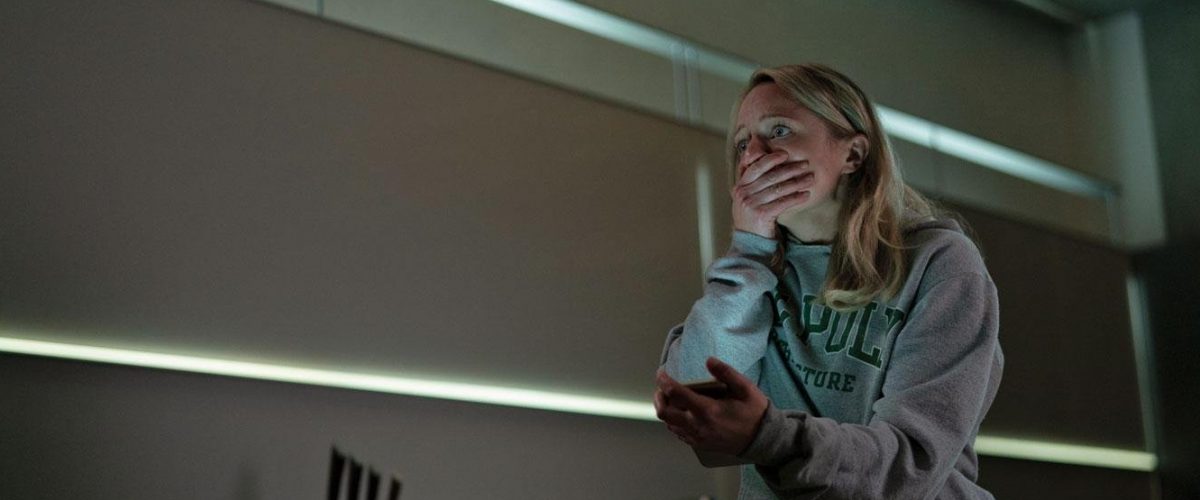
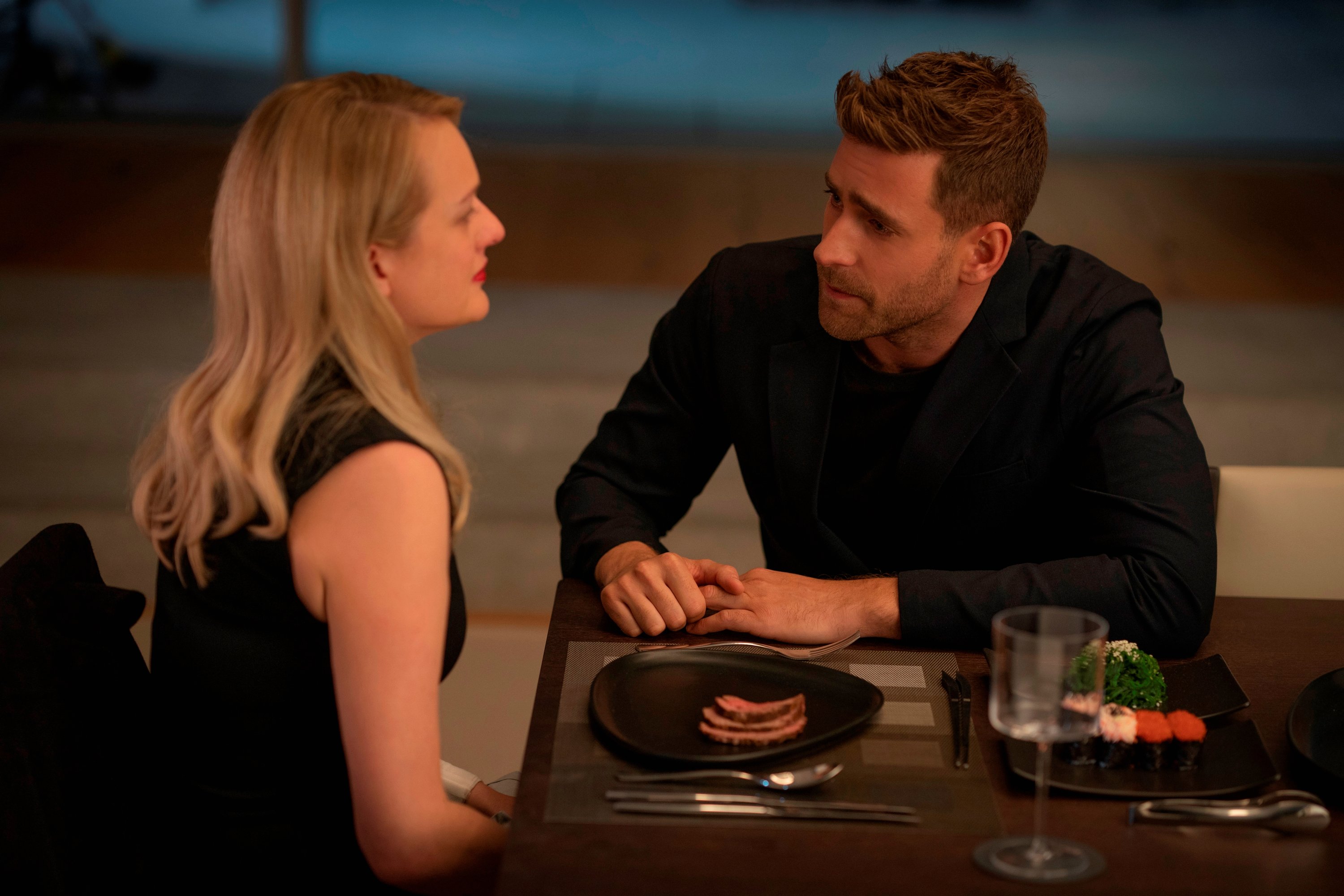 Most films about The Invisible Man focus centrally around, well, The Invisible Man. But not The Invisible Man. Leigh Whannell’s Blumhouse reboot of the classic Universal monster property centres on Elisabeth Moss’s Cecilia, a woman convinced that her abusive ex-boyfriend – who seemingly committed suicide – has mastered the art of invisibility and is using his power to stalk her without detection. It’s a timely, thought-provoking update on H.G. Wells’ original story, one that probes real-world horrors – while still delivering the frights you’d expect from a mainstream scare-‘em-up.
Most films about The Invisible Man focus centrally around, well, The Invisible Man. But not The Invisible Man. Leigh Whannell’s Blumhouse reboot of the classic Universal monster property centres on Elisabeth Moss’s Cecilia, a woman convinced that her abusive ex-boyfriend – who seemingly committed suicide – has mastered the art of invisibility and is using his power to stalk her without detection. It’s a timely, thought-provoking update on H.G. Wells’ original story, one that probes real-world horrors – while still delivering the frights you’d expect from a mainstream scare-‘em-up.
